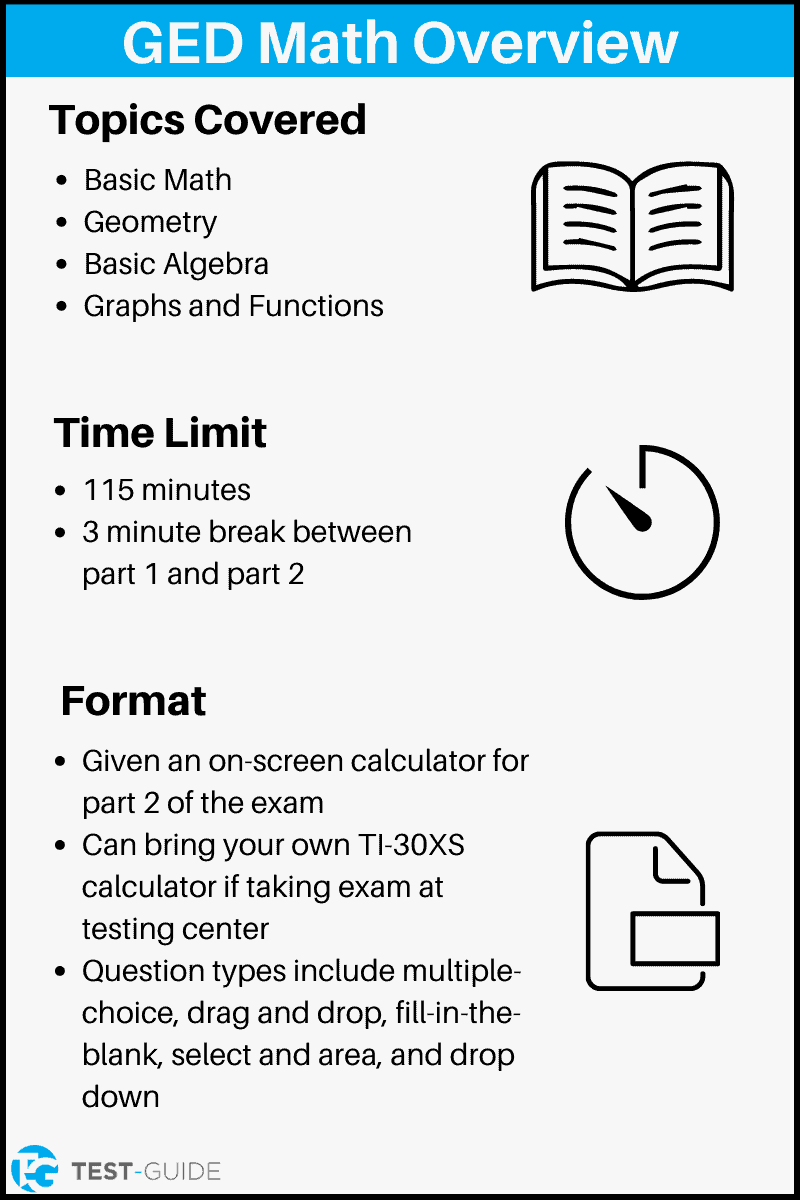Diagnostic GED Math Practice Test
Take our diagnostic exam below and see how you do. It will be a good indicator for how ready you are for your actual GED math exam.
Make sure to use the answer explanations at the end to review important concepts.
If you are looking for help with other subjects, visit our free GED prep home.
GED Math Overview
The GED math test includes 4 main topics:
- Basic Math (26%)
- Geometry (20%)
- Basic Algebra (30%)
- Graphs and Functions (24%)
You will have 115 minutes to take the math portion. This includes 2 minutes of instruction and a 3-minute break between parts.
You will find multiple-choice questions as well as other question types like drag and drop, fill-in-the-blank, select an area, and drop-down questions.
As far as calculators go for the GED math section, the following is true:
- You will have access to an on-screen calculator for part 2 of the math section.
- You can use your own TI-30XS calculator if you are taking the exam in a testing center.
You will also be given a calculator reference sheet and a math formula sheet when taking this portion of the exam.

You can practice for other sections of the exam by visiting our GED test practice home. Here is a link to the official GED math page.
Frequently Asked Questions
How many questions are on the GED math test?
You will find 46 total questions on GED math. The question types include multiple-choice, drag and drop, fill-in-the-blank, select an area, and drop-down questions.
What is the time limit for GED math?
You will have 115 minutes to complete the math portion of the GED.
What kind of math is on the GED?
You will find questions relating to basic math, geometry, basic algebra, and graphs and functions.
Can you use a calculator on the GED math exam?
Calculators are not allowed on the first section of the math exam. However, you can use a calculator on the second section. If you are taking the exam online, you will be provided with an on-screen calculator. If you are taking the exam in a testing center, you may bring your own TI-30SX calculator.
What is a passing score for GED math?
You will need to score at least 145. The best score you can get is 200. You can read more about GED scores to learn more.

